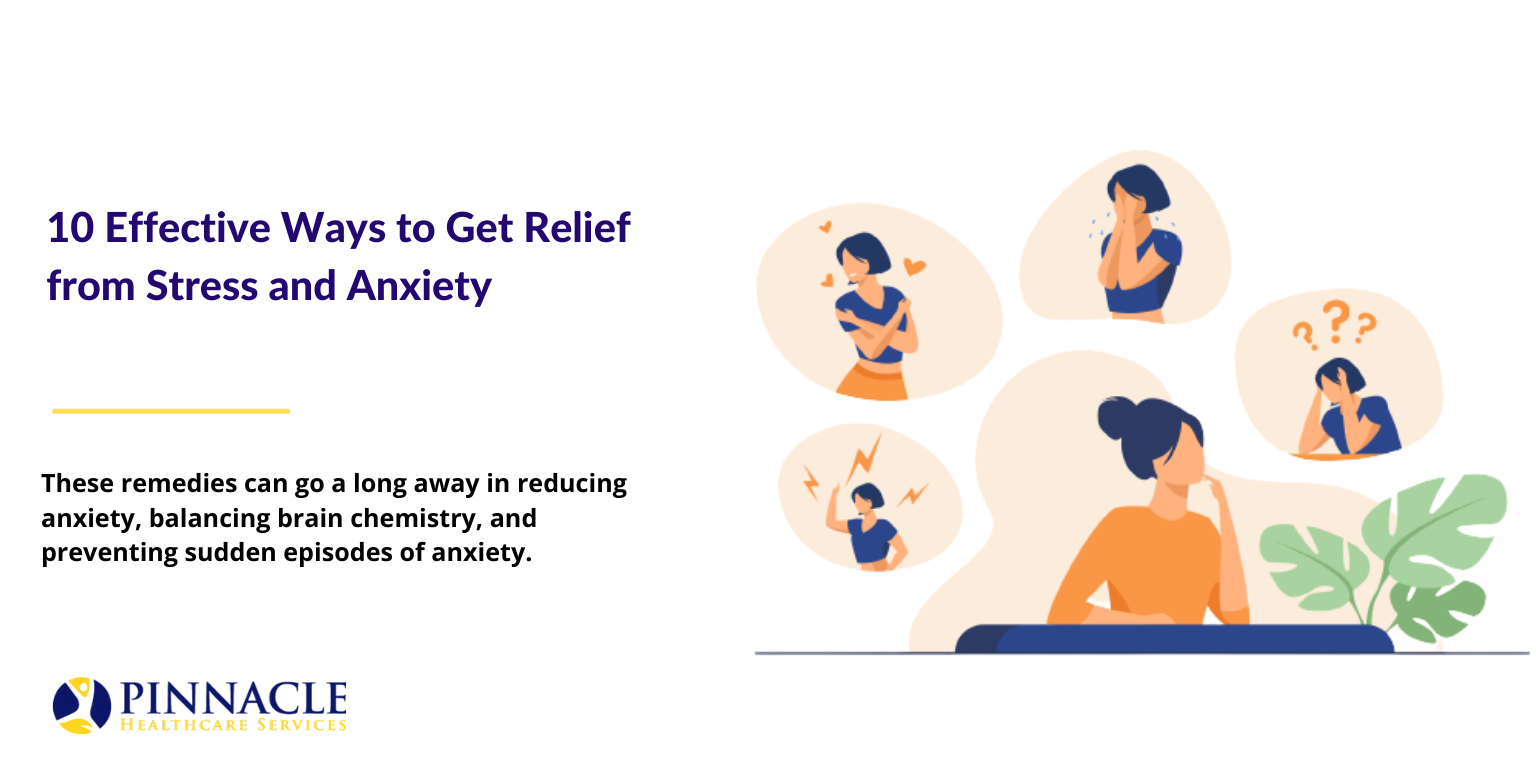Our lives have become so complex nowadays to the point where we become anxious about everything. This can have a negative impact on our lives as persistent anxiety can cause emotional distress, leading to the development of various anxiety disorders such as phobias and panic attacks. According to recent statistical reports, around 40 million adults in the U.S alone have anxiety disorders.
Some symptoms of anxiety are as follows:
- Feeling nervous
- Changes in appetite
- Trouble focusing
- Dry mouth
- Hyperventilation
- Dizziness
Fortunately, various science-backed strategies can help calm these feelings. One of the most effective strategies is the grounding technique.
What Exactly Is the Grounding Technique?
The grounding technique is a practice that can help a person ease their anxiety. This exercise can help manage those intense emotions by steering your attention away from distressing feelings to refocus on what is happening in the present moment.
Your sympathetic nervous system (SNS) kicks the “fight or flight” response into gear when you feel overwhelmed or anxious. Thus, getting yourself engaged in grounding techniques will enable your body to tap into your parasympathetic nervous system (PNS). This will help to relieve stress and allow you to relax.
For example, try to avoid saying to yourself statements like:
"Oh God, this is so tough!"
"Why does this keep happening to me?"
"This situation is making me insane!"
Instead, try to say or think something like:
"It's okay even if I am feeling this way."
"This is just my anxiety talking. I know this will pass."
"I've got this!"
You will be amazed at the difference you will feel when you choose to be kind to yourself rather than engaging in negative thoughts.
6 Simple Grounding Techniques for Anxiety
Here are some simple grounding or calming techniques for anxiety that can help alleviate your stress when you find yourself spiraling. These can help if you don’t have any clue on how to stop the anxiety attack:
1. Focus On Your Surroundings
Move your head in different directions and observe rather than focusing on what you can see in your immediate line of vision. For example, if you are in college, look beyond your study table. Focus on the different sounds (other students talking, traffic noises outside the class, etc.) and various smells (aroma of food, perfume, etc.) in the room. This helps to keep your brain engaged in something else rather than getting anxious.
2. Focus on Breathing
Your heart rate increases when you inhale and decreases during exhaling. An uneven or fast heart rate often happens during an anxiety or panic attack. These attacks trigger the ‘fight or flight’ response that boosts adrenalin and shuts off the thinking part of your brain (prefrontal cortex). On the other hand, a decreased heart rate helps in activating PNS.
Focus on your breathing and make sure you exhale twice as long as you inhale. Continue this for 5-10 minutes to help relax your mind.
3. Engage Your Taste Buds
You can use a piece of cinnamon, ginger candy, or something else that is spicy and concentrate on the taste and tingling sensations in your mouth when you eat it. This helps you focus on what is going on in your mouth instead of the anxiety.
4. The 5-4-3-2-1 Method
This exercise includes naming five things that you see around you. This is followed by touching any four things around you. Then identify any three sounds that you can hear around you. Next, find two things you can smell and, lastly, one thing you can taste.
5. Focus on a Nearby Object
Find one thing in the room and focus on it. Pay attention to the shape, size, color, weight, texture, etc. This helps you get distracted from all the intense feelings and thoughts in your head.
6. Take a Walk
According to medical research, a 10-minute walk can decrease tension, elevate mood and even improve sleep. Try to take a quick stroll around the block and focus on the sounds, smells, and sights nearby.
If you are still experiencing debilitating anxiety, consider getting professional medical help.
At Pinnacle Healthcare Services, we will work with you and ensure that you receive personalized medical treatment that fits your specific needs. Dr. Kurwa Nyigu is a board-certified internist who has more than two decades of experience and is passionate about treating mental health and behavioral issues. Contact our medical team today to book an appointment.







